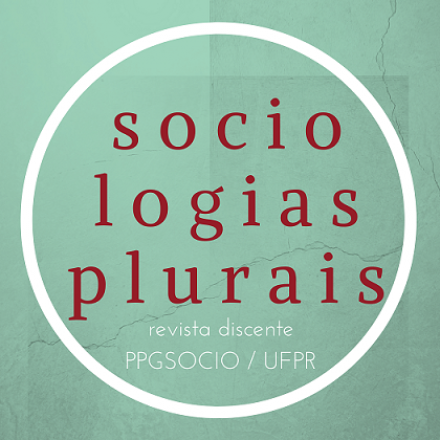A FENOMENOLOGIA DE MARTIN HEIDEGGER E A ESPECIFICIDADE METODOLÓGICA DAS CIÊNCIAS HUMANAS
Sociologias Plurais
A FENOMENOLOGIA DE MARTIN HEIDEGGER E A ESPECIFICIDADE METODOLÓGICA DAS CIÊNCIAS HUMANAS
Autor Correspondente: Rafael Ribeiro Almeida | [email protected]
Palavras-chave: Ciências Humanas, Heidegger, Método fenomenológico, Compreensão
Resumos Cadastrados
Resumo Português:
As Ciências Humanas movimentam-se num impasse investigativo desde seu processo de constituição, no século XIX. E isso porque o mesmo modelo metodológico utilizado para investigar objetos especificamente regidos por leis naturais, transpassou-se como referencial para as Humanidades. Em vista disso, a racionalidade ligada às Ciências do espírito se percebe na premência de ir em busca de uma base metodológica própria. Neste sentido, nosso objetivo reside em explicitar a Fenomenologia de Martin Heidegger e sua possível contribuição para o universo temático das Ciências Humanas, em termos de método específico. Para tanto, investiga-se o pensamento de Heidegger em sua primeira fase filosófica representado, em especial, por “Ser e tempo” e “Os problemas fundamentais da fenomenologia”, ambos de 1927. A primeira evidência da contribuição heideggeriana no tocante a uma metodologia específica das Humanidades reside no fato de o autor ter introduzido um universo existencial no método por ele elaborado. O segundo indicativo da contribuição heideggeriana basicamente resume-se ao modo como o autor entende o conceito de “compreensão”. Assim sendo, indica-se viável propor uma postura metodológica alternativa, que, tal qual as Ciências Naturais, também pretende produzir uma racionalidade: a racionalidade das Ciências Humanas.
Resumo Inglês:
The Human Sciences have been experiencing difficulties since the initial founding process in the 19th century. And this is because the same methodological model used to investigate natural facts, has also become a standard method for the Humanities. Therefore, the rationality related to the Humanities is perceived in the need to seek its own methodological basis. Therefore, the main objective of our article is to explain Martin Heidegger's Phenomenology and its possible contribution to the context of Human Sciences, from the point of view of the method. Thus, Heidegger's thought in its first philosophical phase is investigated, in particular: Ser e tempo (Being and Time) and Os problemas fundamentais da fenomenologia (The fundamental problems of phenomenology), books published in 1927. The first demonstration of Heidegger's contribution in relation to a specific methodology of the Humanities lies in the fact that the author introduced an existential context in the method he worked on. The second demonstration of Heidegger's contribution basically comes down to how the author understands the concept of "understanding". Therefore, it is possible to propose an alternative methodology, which, like the Natural Sciences, also intends to produce a rationality specifically for the Humanities.

